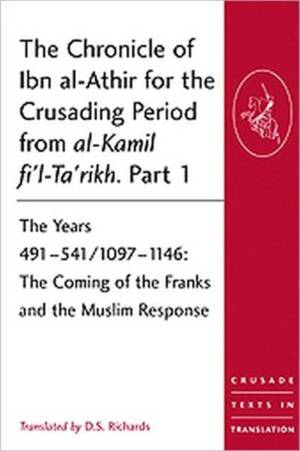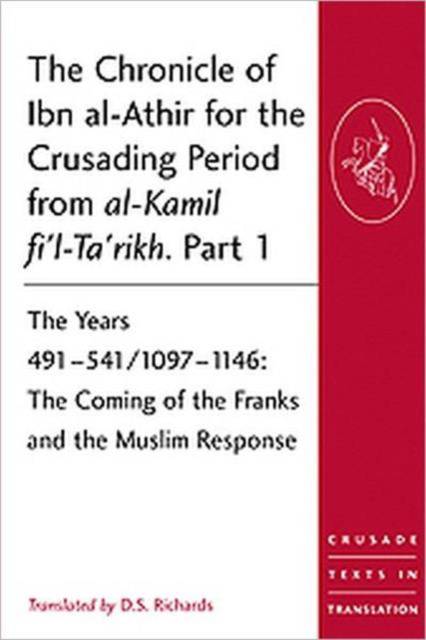
Bedankt voor het vertrouwen het afgelopen jaar! Om jou te bedanken bieden we GRATIS verzending (in België) aan op alles gedurende de hele maand januari.
- Afhalen na 1 uur in een winkel met voorraad
- In januari gratis thuislevering in België
- Ruim aanbod met 7 miljoen producten
Bedankt voor het vertrouwen het afgelopen jaar! Om jou te bedanken bieden we GRATIS verzending (in België) aan op alles gedurende de hele maand januari.
- Afhalen na 1 uur in een winkel met voorraad
- In januari gratis thuislevering in België
- Ruim aanbod met 7 miljoen producten
Zoeken
The Chronicle of Ibn Al-Athir for the Crusading Period from Al-Kamil Fi'l-Ta'rikh. Part 1
The Years 491-541/1097-1146: The Coming of the Franks and the Muslim Response
€ 85,45
+ 170 punten
Omschrijving
The Chronicle of Ibn al-Athir (1160-1233AD), entitled 'al-Kamil fi'l-Ta'rikh', is one of the outstanding sources for the history of the mediaeval world. It covers the whole sweep of Islamic history almost up to the death of its author and, with the sources available to him, he attempted to embrace the widest geographical spread; events in Iraq, Iran and further East run in counterpoint with those involving North Africa and Spain. From the time of the arrival of the Crusaders in the Levant, their activities and the Muslim response become the focus of the work. This part covers the establishment of the Crusader states and the initial weak and divided response of Muslim regimes in the area, the moribund Fatimid caliphate in Egypt and competing emirs in Syria and Mesopotamia. The strengthening of the Muslim reaction is typified by the career of Zanki, which also illustrates the important links with events in the orbit of the Abbasid caliphate and the Saljuq sultanate.
Specificaties
Betrokkenen
- Uitgeverij:
Inhoud
- Aantal bladzijden:
- 414
- Taal:
- Engels
- Reeks:
Eigenschappen
- Productcode (EAN):
- 9780754669500
- Verschijningsdatum:
- 2/07/2010
- Uitvoering:
- Paperback
- Formaat:
- Trade paperback (VS)
- Afmetingen:
- 156 mm x 234 mm
- Gewicht:
- 580 g

Alleen bij Standaard Boekhandel
+ 170 punten op je klantenkaart van Standaard Boekhandel
Beoordelingen
We publiceren alleen reviews die voldoen aan de voorwaarden voor reviews. Bekijk onze voorwaarden voor reviews.








